General Nguyen Chi Thanh (1914-1967) was a staunch communist soldier, an excellent leader, a talented general, who made many great contributions to the revolutionary cause of the Party and the nation.
President Ho Chi Minh and General Nguyen Chi Thanh. Photo: Archive
Throughout his revolutionary career, he held many important responsibilities in areas and fields with many difficulties and hardships, always "excellently completing all tasks assigned by the Party Central Committee, the Government , the Central Military Commission and the General Command" (1).
In particular, in his positions as a member of the Politburo , member of the Secretariat, Deputy Secretary of the General Military Commission (now the Central Military Commission), Director of the General Political Department of the General Command of the Vietnam National Army (2) and the Vietnam Militia (now the Vietnam People's Army), the General "made great contributions in strengthening and consolidating the Party's leadership over the people's armed forces, building a political work tradition, promoting the revolutionary nature of the Army..." (3); in which, there were important contributions, contributing to affirming the role of Party work and political work (CTĐ, CTCT) in the Vietnam People's Army (VPA).
1. General Nguyen Chi Thanh affirmed that Party work and political work are the "soul and lifeblood of the Army"
Marxism-Leninism theory, Ho Chi Minh thought, and the Party's viewpoint consistently affirm: Taking care to build a strong and comprehensive Army, taking strong political construction as a prerequisite to ensure that the Army is truly a political force absolutely loyal to the Fatherland, the Party, and the people, a sharp tool of violence, ready to fight and sacrifice for national independence and socialism.
Discussing the role of political-spiritual factors, V. Lenin emphasized: "In every war, victory ultimately depends on the spirit of the masses shedding blood on the battlefield" (4). Applying and creatively developing Marxism-Leninism to the conditions of the Vietnamese revolution, President Ho Chi Minh paid special attention to building a politically strong Army.
In the Directive on the establishment of the Vietnam Propaganda Liberation Army (December 1944), he pointed out: "The name of the Vietnam Propaganda Liberation Army means that politics is more important than military" (5) and in his speech at the Military Intermediate Political School (now the Political Academy), he instructed: "Military without politics is like a tree without roots, useless and harmful" (6). President Ho Chi Minh's ideology of "politics is more important than military" in building the Army is consistent with the Party's viewpoint of "people first, guns later", which is the guideline, guiding principle, and motto for building a comprehensively strong Vietnam People's Army, taking political strength as the foundation.
Thoroughly grasping Marxism-Leninism, Ho Chi Minh thought and the Party's viewpoint, on the basis of summarizing the Party's revolutionary cause and political ideology after 15 years of building the Army (1944-1959), General Nguyen Chi Thanh concluded the thesis: The Party's revolutionary cause and political ideology are "the soul and lifeblood of the Army". This is the General's famous thesis, which summarized concisely, briefly and fully the role of the Party's revolutionary cause and political ideology for the Vietnam People's Army. The General affirmed: "The history of building and striving of our Army is first of all the history of the Party's leadership of the Army; the process of growth and victory of our Army is closely linked to the constant consolidation and strengthening of the Party's revolutionary cause and political ideology in the Army. The Party's revolutionary cause and political ideology have been the soul and lifeblood of our Army, making our Army truly an Army of the nation, of the class, an army that will surely win" (7).
Explaining deeply the role of the Party and the Central Committee as "the soul and lifeblood of the Army", General Nguyen Chi Thanh pointed out: All Party and Central Committee activities in the Army demonstrate the Party's leadership over the Army, aiming to build a strong Army in terms of politics, ideology, and organization, which is the tradition and indispensable strength of the Army. Carrying out the Party and the Central Committee is a matter of principle, playing an important role in maintaining and strengthening the Party's leadership, the nature of the working class, the people's character and the national character, improving the overall quality and fighting strength of the Vietnam People's Army.
According to the General: "The process of determining the status, role, and nature of political work is a process of cognitive and ideological struggle in the Army" (8). Under the leadership of the Party, the Party Central Committee and the Political Bureau in the Army carry out many important and complex tasks, such as: Party building, political and ideological education, propaganda, dissemination of the Party's guidelines and policies, the State's policies and laws, training for combat readiness and combat, internal political protection, building a contingent of cadres, mass mobilization work, enemy mobilization... "If the Party organization does not have a political work agency through which to lead the Army, the Party's leadership effectiveness will be limited, and mobilizing a large number of cadres and soldiers in our Army to voluntarily and thoroughly carry out their tasks will not be possible" (9).
The General pointed out the essence of political work: "Political work is Party work, the Party's mass mobilization work in the Army, its nature must be leadership, combat and the masses. If it departs from or fails to thoroughly grasp these three natures, political work will lack Party character, lack strength, and will fall into a state of deviation, generality, ambiguity, pure administration and technique... Political work must be closely combined with staff and logistics work, and must ensure that all of these tasks are carried out well" (10).
The process of building, fighting, winning and maturing of the Army has proven the role of the Party and the Party as the "soul and lifeblood", becoming the leading important factor ensuring that the Vietnam People's Army always maintains its political orientation and constantly strengthens its working class nature, has a deep people's and national character, completes all tasks assigned by the Party, State and people in the cause of fighting for national liberation, building and firmly defending the socialist Fatherland of Vietnam and fulfilling international obligations.
Currently, our country is continuing to comprehensively and synchronously promote the renovation process under the leadership of the Party in the context of the world and regional situation with many rapid, complicated and unpredictable developments; hostile forces are trying to promote "peaceful evolution" and sabotage the Vietnamese revolution in all aspects, in which they focus on propagating reactionary arguments, demanding "neutralization" and "depoliticization" of the Army, aiming to make cadres and soldiers lose their fighting goals and ideals, and the Army lose its political orientation.
That reality places increasingly high demands on the task of building the Army, consolidating national defense, and protecting the Fatherland, requiring Party committees, Party organizations, political agencies, political cadres, and commanders at all levels in the entire Army to continue to thoroughly grasp and correctly perceive the role of the Party building and the Party building in the Army. On that basis, carry out the Party building and the Party building with quality and effectiveness, ensuring that the Army is politically strong, contributing to building a revolutionary, disciplined, elite, and gradually modern People's Army, creating a solid foundation, striving by 2030 to build a "revolutionary, disciplined, elite, and modern People's Army; strong in politics, ideology, ethics, organization, and cadres" (11) as determined by the Resolution of the 13th National Party Congress.
2. General Nguyen Chi Thanh directs the building of a strong political agency system and political cadre team.
To meet the requirements of the resistance war against the French colonialists and the maturity of the Army, on July 11, 1950, President Ho Chi Minh signed Decree No. 121/SL "On the organization of the General Command of the National Army and the Vietnam Militia", including the agencies: General Staff, General Department of Politics and General Department of Supply, with the task of "Directly assisting the Commander-in-Chief in directing the war in military terms" (12). According to Decree No. 121/SL, the General Department of Politics was established on the basis of upgrading the Political Department to the General Department of Politics (13). On the same day, President Ho Chi Minh signed Decree No. 122/SL appointing "Comrade Nguyen Chi Thanh as Director of the General Department of Politics" (14).
The role of the Party Central Committee and the Political Bureau is mainly demonstrated through the activities of the political agency system and the political cadres at all levels, under the direct leadership and direction of the Party organization, Party committees, political commissars, and political officers - representatives of the Party in the Army. Realizing that, after taking on the responsibility of the Chief of the General Political Department, General Nguyen Chi Thanh devoted his time, enthusiasm, effort, and intelligence to building the political agency system and the political cadres at all levels in the entire army, first of all, building the General Political Department worthy of its role and mission as a strategic agency to assist the Party Central Committee and the General Military Commission in leading and directing the Party Central Committee and the Political Bureau in the Army.
In the first meeting with the comrades of the Department Directors and the Chief of the General Political Department's Office, comrade Nguyen Chi Thanh emphasized the task of building a strong Army in terms of politics, ideology and organization. To carry out this task well, according to him, "it is necessary to quickly summarize the political work in the Army" to have a basis for proposing directions, tasks and solutions to build the agency and instruct the comrades of the Department Directors to urgently prepare for the organization of a military conference on propaganda, organization, protection, enemy agitation... to create a change in political work in the Army.
During his tenure as Director of the General Department of Politics, General Nguyen Chi Thanh always grasped the situation and tasks of the revolution and the Army, the ideology and guiding viewpoints of the Party Central Committee, President Ho Chi Minh, the General Military Commission, and the Commander-in-Chief to fully determine the functions and tasks of the General Department and its affiliated agencies and units. According to the General, in order to successfully fulfill the task of "assisting the Commander-in-Chief in directing the Army in political aspects" (15), the General Department of Politics must improve the quality of advice and proposals to help the General Military Commission and the Commander-in-Chief decide on major policies and solutions on counter-terrorism and counter-terrorism. At the same time, based on the policies and resolutions of the General Military Commission, the instructions and orders of the Commander-in-Chief, to determine the content and measures for leadership, direction, develop plans for implementation, guide and inspect subordinates to effectively carry out counter-terrorism and counter-terrorism activities.
The General always paid attention to building a "strong, tight and widespread" party organization system in the Army (16); building and developing the contingent of party members; directing party organizations to implement the principles of party organization and activities, especially the principles of democratic centralism, self-criticism and criticism; regularly and actively researching and innovating leadership methods, improving the quality of activities; carrying out quality inspection work and internal political protection work; combining the building of a clean and strong party organization with the building of a comprehensively strong agency and unit, building a contingent of party members with the building of a contingent of cadres, building cadres in charge with the building of strong Party committees...
Thoroughly imbued with President Ho Chi Minh's viewpoint and ideology: "Cadres are the root of all work", "All success or failure depends on good or bad cadres" (17), General Nguyen Chi Thanh especially attached importance to building the Army's cadre team in general, and political cadres in particular. From strictly evaluating and criticizing the limitations in cadre work, the General raised principled issues on cadre work and building the cadre team, emphasizing: "Promoting cadres is based on practical needs and revolutionary interests", "promoting cadres in accordance with policies, promptly serving the work needs and growth of the Army" (18).
He requested: We must grasp the situation of cadres firmly; train, adjust appropriately and boldly promote promising cadres, pay attention to promoting worker-peasant cadres, respect revolutionary intellectuals; focus on improving political and ideological qualifications, grasping and correctly applying Marxism-Leninism, enhancing patriotism and proletarian internationalism; strengthen cadre education and training; improve living conditions for cadres. The team of political cadres must have steadfast political will, pure revolutionary qualities and ethics; scientific working methods and styles, seriousness, accuracy, urgency, specificity, meticulousness and thoughtfulness.
The General criticized: "The empty talk, formalism and dogmatism are all fake diseases, laziness of petty bourgeois revolutionaries" (19). The General required the team of political cadres to closely follow reality to understand and grasp the unit's activities, the thoughts and aspirations of the troops, and to learn, accumulate experience, improve their qualifications and ability to advise and make accurate and correct proposals for the development of policies, plans and organization of task implementation.
The General pointed out: "The higher the cadre, the more he goes around and searches, and that makes the relationship between superiors and subordinates very good... If you dare to go down, sometimes at first it will have some effect, but over time your eyes will become sharper, your ears will become sharper, and your effect will be greater" (20).
With his enthusiasm, General Nguyen Chi Thanh and the Board of Directors and the Party Committee of the General Department of Politics led and directed Party committees at all levels to thoroughly grasp and implement resolutions, directives, guidelines, and regulations on personnel work and build a contingent of cadres in accordance with principles, with high quality and efficiency. Thanks to that, the contingent of military cadres in general and political cadres in particular has increasingly matured, with reasonable quantity and structure, strong political will, academic qualifications, and professional capacity to well meet the requirements and assigned tasks.
The contributions of General Nguyen Chi Thanh in building the system of political agencies and the contingent of political cadres at all levels, contributing to affirming the role of the Party Central Committee and the Central Committee in the Army, are of great significance in the cause of building the Army, strengthening national defense, and protecting the Fatherland today. Studying and applying the General's viewpoints and thoughts in the new situation, it is necessary to continue to thoroughly grasp and strictly implement Resolution No. 51-NQ/TW dated July 20, 2005 of the Politburo, 9th tenure "On continuing to perfect the Party's leadership mechanism to implement the one-person commander regime associated with implementing the political commissar and political officer regime in the Vietnam People's Army"; Regulation No. 51-QD/TW dated December 29, 2021 of the Secretariat of the 13th Party Central Committee "On the organization of political agencies in the Vietnam People's Army".
Focus on building a comprehensively strong political system of "exemplary" agencies, taking political strength as the foundation, closely linked with building a clean and strong Party organization and Party committee in terms of politics, ideology, organization, ethics and cadres. Strengthen training of revolutionary qualities and ethics, innovate the style, methods and working manners of political cadres, improve the effectiveness and affirm the role of the Party Central Committee and the Party Central Committee in building the Army, meeting the requirements of consolidating and strengthening national defense and protecting the Socialist Republic of Vietnam.
3. General Nguyen Chi Thanh orients and directs the building and completion of principles and regimes for Party work and political work.
Building and perfecting the principles and operating regimes of the Party and the Party Committee is a great contribution of General Nguyen Chi Thanh, contributing to affirming the role of the Party and the Party Committee in the Army. As a member of the Politburo, member of the Secretariat, Deputy Secretary of the General Military Commission, Director of the General Department of Politics, General Nguyen Chi Thanh has devoted much effort to researching and generalizing into seven principles of the Party and the Party Committee in the Vietnam People's Army, focusing on basic and main contents, such as: The Party's absolute and direct leadership in all aspects of the Army; political work must go deep into the combat and construction life of the Army; Political work cannot be general, far from reality, far from the masses... In particular, the principle of the Party's absolute and direct leadership in all aspects of the Army "is an immutable principle in building a new-style Army like our Army" (21), to ensure that the Army "follows the class line, follows the Party's political direction and fulfills its revolutionary mission" (22).
The General pointed out: "To continuously improve the level of awareness of cadres and soldiers to implement the absolute leadership of the Party, we must adopt a political work regime and a strict political work system. In the history of our Army, whenever we have firmly grasped and strengthened the political work regime, our Army has progressed in the right direction and continuously won victories. On the contrary, we have gone astray and encountered many difficulties" (23).
According to the General, to implement the Party's leadership over the Army, the activities of the Party and the people with the characteristics of leadership, combat and the masses must take democratic centralism as the regime, take collective leadership as the highest principle of the Party's leadership; on that basis, implement internal solidarity within the Party and within the Army, promote the Party's and the masses' intelligence, reduce subjectivity and one-sidedness in leadership, avoid and prevent the development of personal authority, arbitrariness and anarchy. At the same time, it is necessary to take the Party's self-conscious iron discipline to maintain unity of thought and action within the Party and as the basis for military discipline; take self-criticism and criticism as the law of development; take the Party Committee as the core of leadership, and at the same time determine the regime of political leaders and military leaders assigning responsibilities under the leadership of the collective Party Committee; take the Party cell as the basis.
The principles the General raised have become the core issues of the Party Central Committee and the Party Central Committee throughout the process of building, fighting, and maturing of the Army, "contributing to guiding the Army in the right direction of the Party in both ideology and organization, building a team of cadres who uncompromisingly fight against all manifestations of wanting to lower the leadership role of the Party and the role of political work, making our Army in any situation strongly promote its revolutionary nature and tradition, quickly improve its fighting capacity, and defeat all enemies" (24).
To promote the effectiveness and efficiency of ideological leadership in the Army, General Nguyen Chi Thanh requested that Party committees, political agencies, political cadres, and commanders at all levels correctly perceive the most important position of ideological leadership. According to the General, "ideological leadership aims to make cadres and soldiers have correct revolutionary stances and thoughts, resolutely and thoroughly implement the revolutionary guidelines and tasks set forth by the Party" (25); thanks to correct ideological leadership and making ideological leadership among the people a matter of utmost importance, we have gained an absolute political and spiritual advantage in the comparison of forces between us and the enemy. That is the fundamental thing, ensuring that our resistance war is long-lasting, arduous, but certainly victorious.
Based on the summary of practice, the General summarized five principles and six methods of leadership (26) of ideological work in the activities of the Party and the State. The principles and methods of ideological leadership of the General demonstrated profound scientific nature and were very effective in building the political work order and regime and promoting strength in ideological work, and still retain their value today.
Those great contributions were recognized by the Party Central Committee in the Eulogy of the Central Committee of the Vietnam Workers' Party: "Comrade Nguyen Chi Thanh made great contributions to consolidating the Party's leadership over the Army, building the Army politically, ideologically and organizationally, nurturing and promoting the revolutionary nature of our Army, building a political work ethic, and rapidly improving the fighting strength of the people's armed forces" (27).
Inheriting and applying the principles, regimes of the Party Central Committee, the Party Central Committee, the principles and methods of ideological leadership in the Army of General Nguyen Chi Thanh, it is necessary to continue to thoroughly grasp the Party's guidelines and policies on "building a politically strong people's armed forces, acting as the core in the cause of national defense, security, and protection of the Fatherland in the new situation" (28), thereby "maintaining and strengthening the absolute and direct leadership in all aspects of the Party, the centralized and unified management of the State over the People's Army" (29).
Focus on leading and directing the building of a comprehensively strong "exemplary model" unit associated with building clean, strong, exemplary Party committees, Party organizations, and command organizations at all levels in terms of politics, ideology, organization, ethics, and cadres.
Continue to effectively implement Conclusion No. 21-KL/TW dated October 25, 2021 of the Central Executive Committee (term XIII) "On promoting the building and rectification of the Party and the political system; resolutely prevent, repel, and strictly handle cadres and party members who have degraded political ideology, morality, lifestyle, and manifestations of "self-evolution" and "self-transformation", Regulation No. 37-QD/TW dated October 25, 2021 of the Central Executive Committee (term XIII) "On things party members must not do" in conjunction with implementing Conclusion No. 01-KL/TW dated May 18, 2021 of the 13th Politburo, "On continuing to implement Directive No. 05-CT/TW dated May 15, 2016 of the 12th Politburo "On promoting the study and following of Ho Chi Minh's ideology, morality, and lifestyle", the Emulation Movement to Win and Directive No. 855-CT/QUTW dated August 12, 2019 of the Standing Committee of the Central Military Commission "On promoting the implementation of the Campaign "Promoting tradition, dedicating talent, worthy of the title "Uncle Ho's soldiers" in the new period", Resolution No. 847-NQ/QUTW dated December 28, 2021 of the Central Military Commission "On promoting the qualities of "Uncle Ho's soldiers", resolutely fighting against individualism in the new situation".
Promote the role of organizations and forces, continue to effectively implement Directive No. 23-CT/TW dated February 9, 2018 of the Secretariat of the 12th Party Central Committee "On continuing to innovate, improve the quality and effectiveness of studying, researching, applying and developing Marxism-Leninism and Ho Chi Minh Thought in the new situation". Strengthen education on history, traditions, laws, standards of political qualities and ethics; resolutely fight against erroneous and hostile viewpoints, especially the plot to "depoliticize" the Army by hostile forces and manifestations of "self-evolution" and "self-transformation" within the Party, ensuring that the Army is always a political force absolutely loyal to the Fatherland, the Party, and the people, ready to receive and successfully complete all assigned tasks.
The 110th anniversary of the birth of General Nguyen Chi Thanh (January 1, 1914 - January 1, 2024) is an opportunity for the entire Party, people and army to continue to honor and express gratitude for his great contributions to the revolutionary cause of the Party and the People, including his important contributions, contributing to affirming the role of the Party and the People's Army in the Vietnam People's Army. Thereby, continuing to educate and fuel the revolutionary tradition for the People, cadres and soldiers of the armed forces, especially the young generation, to enhance patriotism, love for socialism and national pride and self-respect; striving to study, work creatively, unite and be determined to firmly protect "the independence, sovereignty, unity and territorial integrity of the Fatherland, protect the Party, the State, the people and the socialist regime" (30) and build and develop a prosperous and happy country.
------------------------
(1) "Funeral Oration of the Central Executive Committee of the Vietnam Workers' Party". Printed in: Various authors, Collection of General Nguyen Chi Thanh, volume 3, Thoi Dai Publishing House, Hanoi, 2013, p.642.
(2) Complete Party Documents, volume 8, National Political Publishing House, Hanoi, 2000, p.332.
(3) Editorial of Nhan Dan Newspaper, No. 4837, published on July 8, 1967, p.1.
(4) VI Lenin, Complete Works, volume 41, Progress Publishing House, Moscow, 1977, p.147.
(5) Ho Chi Minh Complete Works, Volume 3, National Political Publishing House, Hanoi, 2011, p.539.
(6) Ho Chi Minh Complete Works, Volume 7, National Political Publishing House, Hanoi, 2011, p.217.
(7) General Nguyen Chi Thanh, Strengthening the Party's leadership and political work in the Army (selected speeches and writings), People's Army Publishing House, Hanoi, 1997, p.284.
(8) General Nguyen Chi Thanh's Collection, Volume 1, Book 2, op. cit., p.275.
(9) General Nguyen Chi Thanh's Collection, Volume 1, Book 2, op. cit., p.287.
(10) General Nguyen Chi Thanh's Collection, Volume 1, Book 2, op. cit., p.287.
(11) Communist Party of Vietnam, Documents of the 13th National Congress of Delegates, Volume I, National Political Publishing House Truth, Hanoi, 2021, p.158.
(12) General Department of Politics, History of the General Department of Politics of the Vietnam People's Army, volume 1, People's Army Publishing House, Hanoi, 2014, p.143.
(13) The predecessor of the General Political Department was the Political Department, established in September 1945 under the directive of the Central Committee of the Indochinese Communist Party to manage political work in the armed forces led by the Viet Minh, with the core being the Vietnam Liberation Army. On March 25, 1946, the President of the Coalition Government issued Decree No. 34/SL, establishing the Political Department as one of the 10 agencies of the Ministry of National Defense. On May 6, 1946, the Resistance Committee changed its name to the Military Committee Committee according to Decree No. 60/SL of President Ho Chi Minh, abbreviated as the Military Committee Committee; accordingly, another Political Department was established under the Military Committee Committee. In November 1946, the Ministry of National Defense merged with the Military Committee Committee to form the Ministry of National Defense - General Command according to Decree No. 230/SL dated November 30, 1946 of the President. The Political Department of the Ministry of National Defense and the Political Department of the Military Commission merged into the Political Department under the General Command of the Vietnam National Army. In July 1950, the Political Department was upgraded to the General Political Department, under the General Command of the Vietnam National Army and Militia.
(14) Complete Party Documents, volume 11, National Political Publishing House, Hanoi, 2001, p.346.
(15) History of the General Department of Politics of the Vietnam People's Army, volume 1, op. cit., p.143.
(16) General Nguyen Chi Thanh - Collection, op. cit., p.531.
(17) Ho Chi Minh Complete Works, ibid, volume 5, p.280.
(18) Nguyen Chi Thanh, Selected articles on military, People's Army Publishing House, Hanoi, 1977, p.75.
(19) Selected articles on military, ibid, p.76.
(20) Selected articles on military affairs, ibid, p.322.
(21) General Nguyen Chi Thanh - Collection, op. cit., p.533.
(22) General Nguyen Chi Thanh - Collection, op. cit., p.531.
(23) General Nguyen Chi Thanh - Collection, People's Army Publishing House, Hanoi, 2014, p.533.
(24) Various authors, General Nguyen Chi Thanh's Collection, volume 2, Thoi Dai Publishing House, 2013, p.255.
(25) General Nguyen Chi Thanh's Collection, volume 2, op. cit., p.252.
(26) Five principles of ideological leadership: 1. Ideological leadership requires a positive spirit and a constructive consciousness. 2. Problems must be solved at their roots. 3. Must be proactive, have foresight, and follow the principle of combining disease prevention with treatment. 4. Must have a principled and sharp fighting spirit. 5. Ideological leadership is a long-term, extremely complex and difficult task, so ideological leadership needs to promptly propose different requirements based on changes in circumstances, tasks, and characteristics of specific subjects. Six methods of ideological leadership: 1. Always clearly understand the ideological situation and analyze ideological causes. 2. Be skillful in provoking, guiding, diligent, and persistent in persuading. 3. Promote the effect of criticism and self-criticism in a spirit of self-awareness and mass nature. 4. Direct all forms and tools of political education toward the purpose of ideological leadership in each period. 5. Combine ideological leadership with organizational leadership. 6. Combine ideological leadership with leadership in implementing the Party and Government's policies and guidelines. Quoted from: General Nguyen Chi Thanh's Collection, Volume 2, op. cit., pp. 252 - 253.
(27) Quoted from: General Nguyen Chi Thanh's Collection, volume 3, op. cit., p.641.
(28) Documents of the 13th National Congress of Delegates, volume I, op. cit., p.161.
(29) Documents of the 13th National Congress of Delegates, volume I, op. cit., p.160.
(30) Documents of the 13th National Congress of Delegates, volume I, op. cit., p.156.
Source


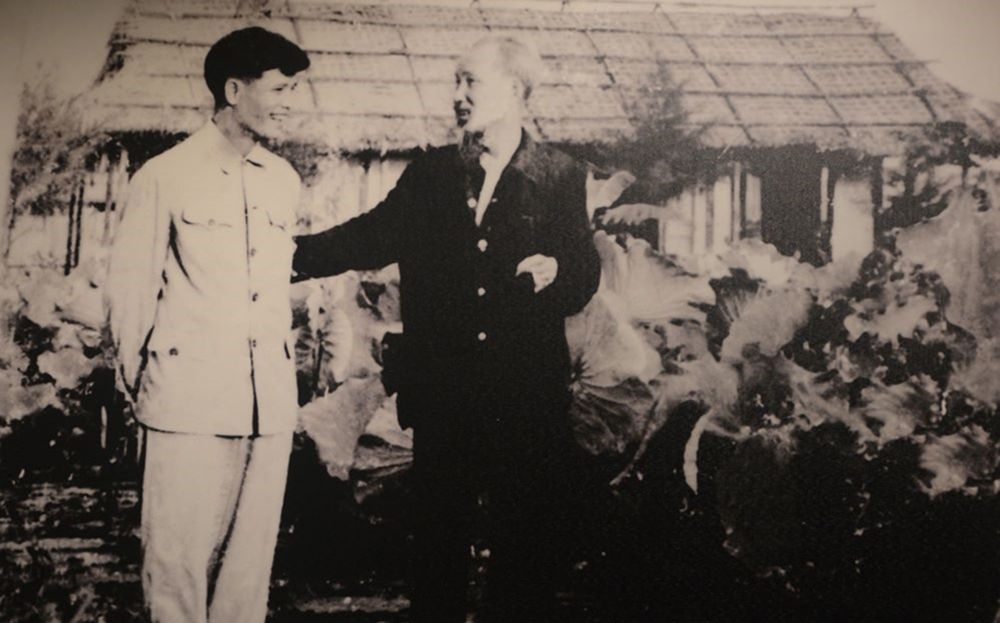
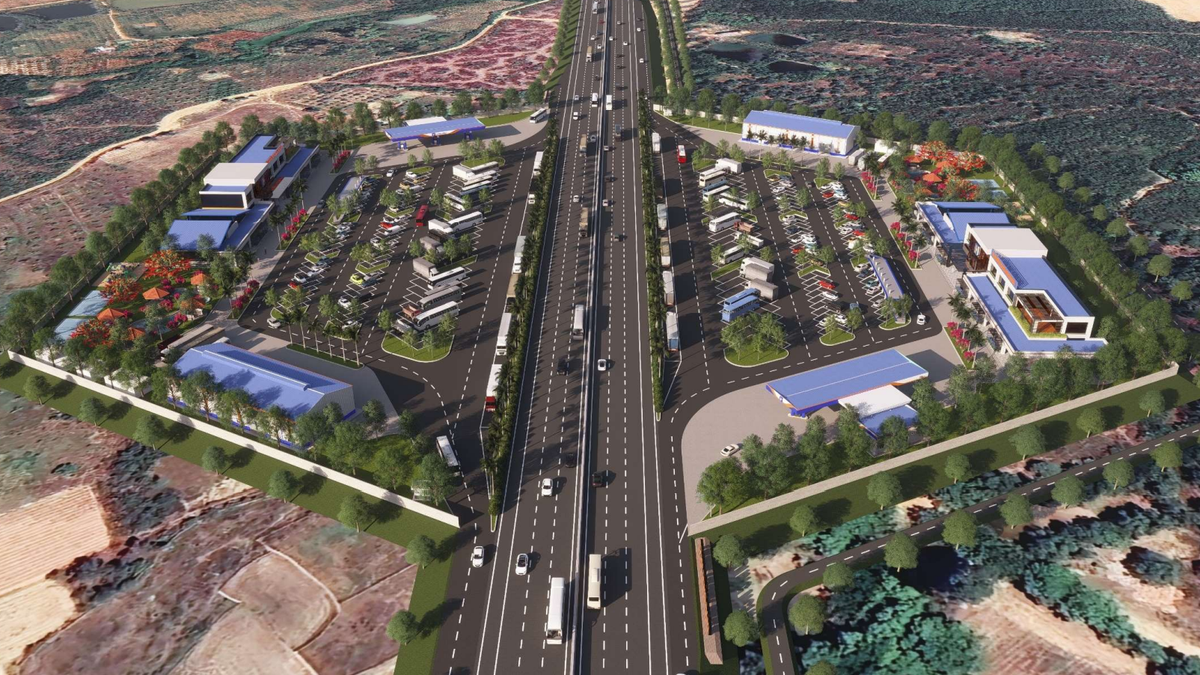
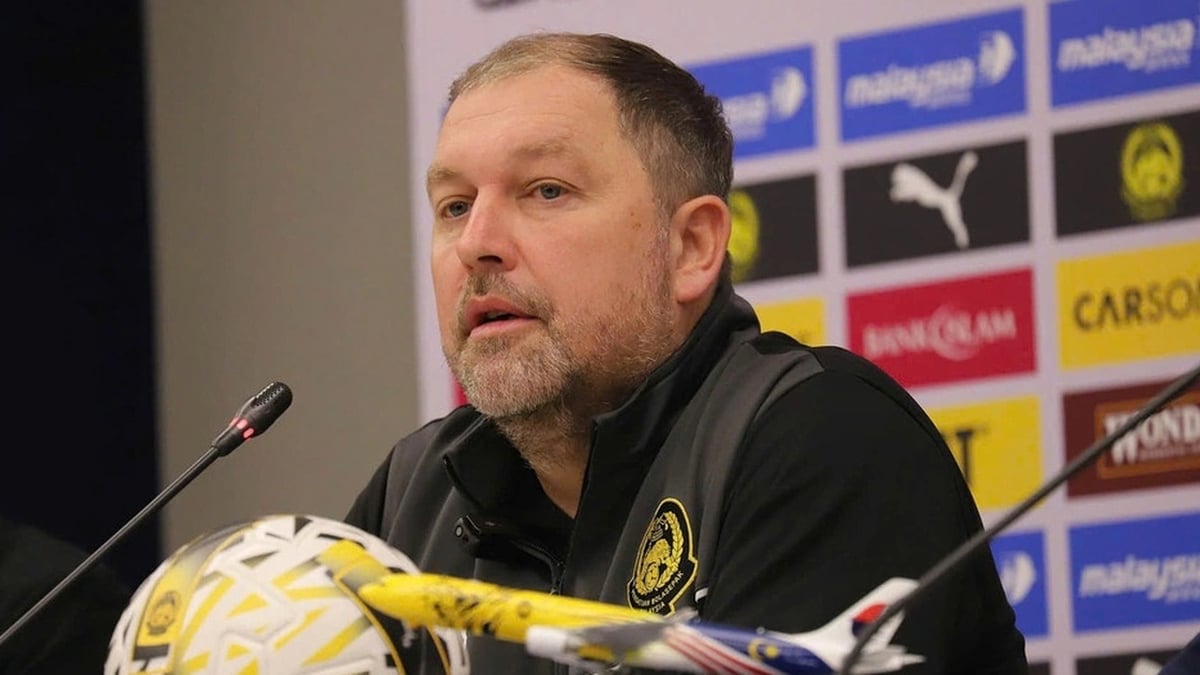
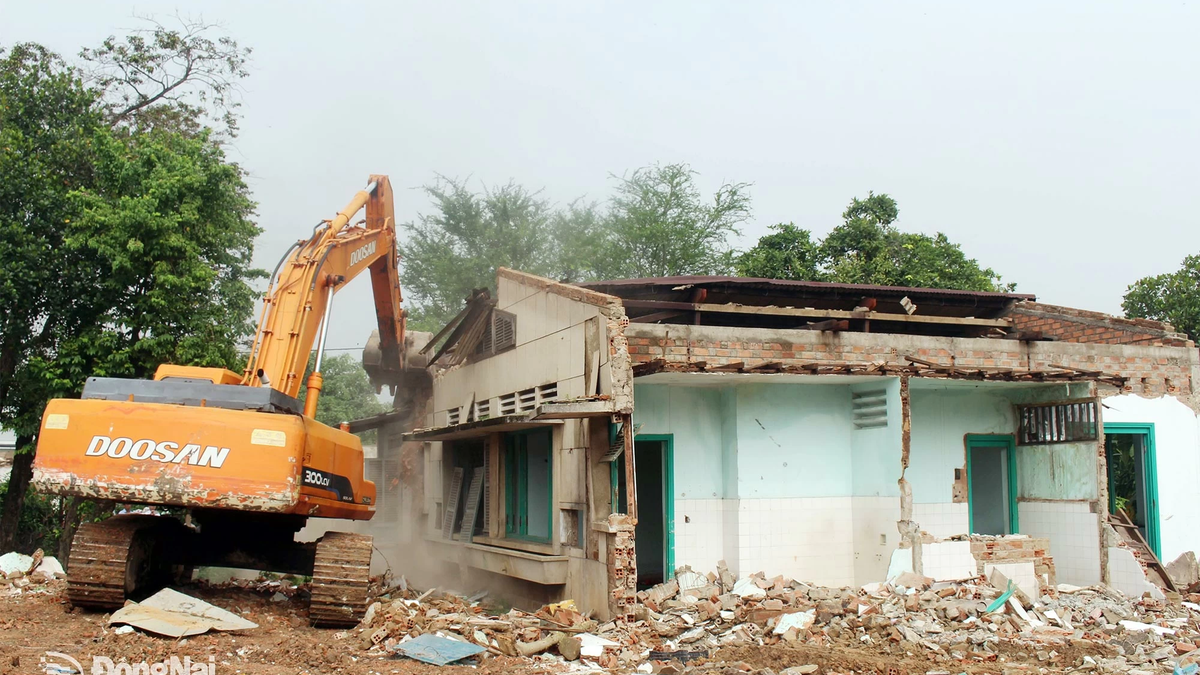
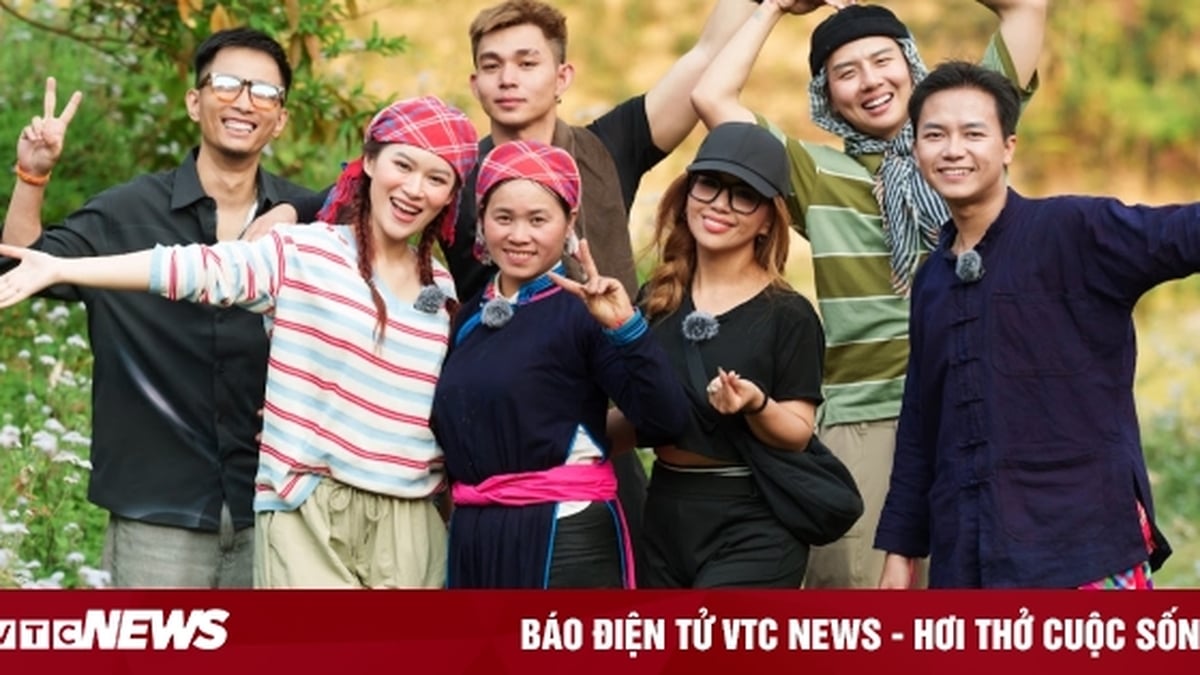
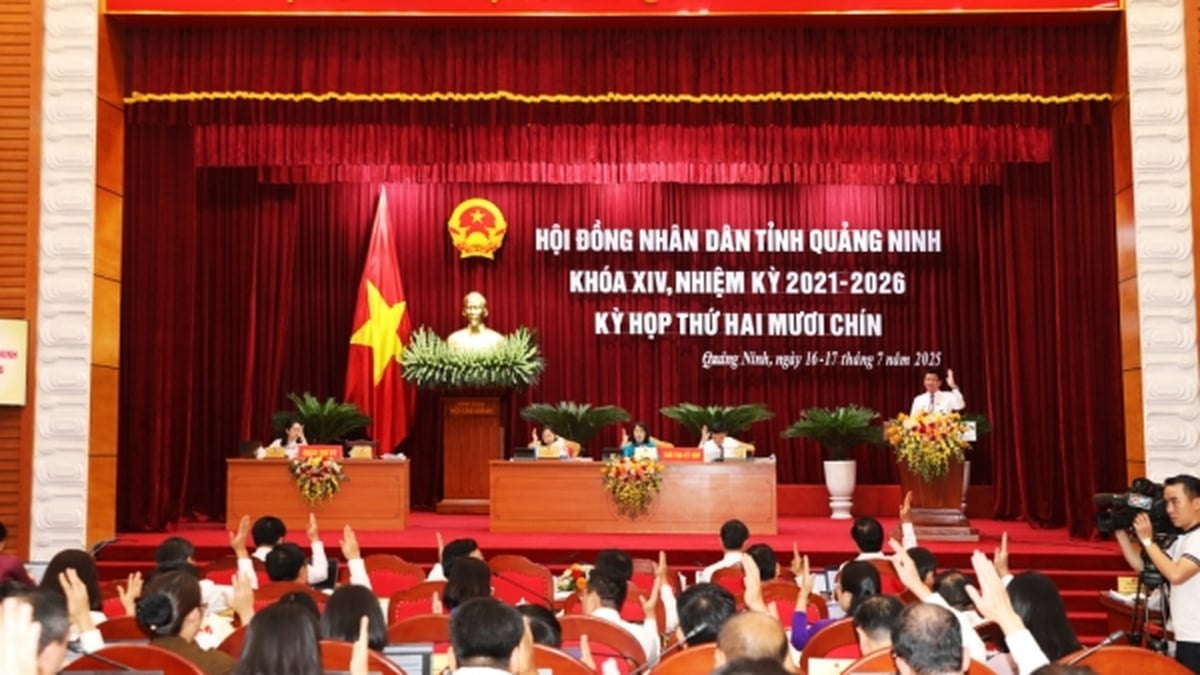
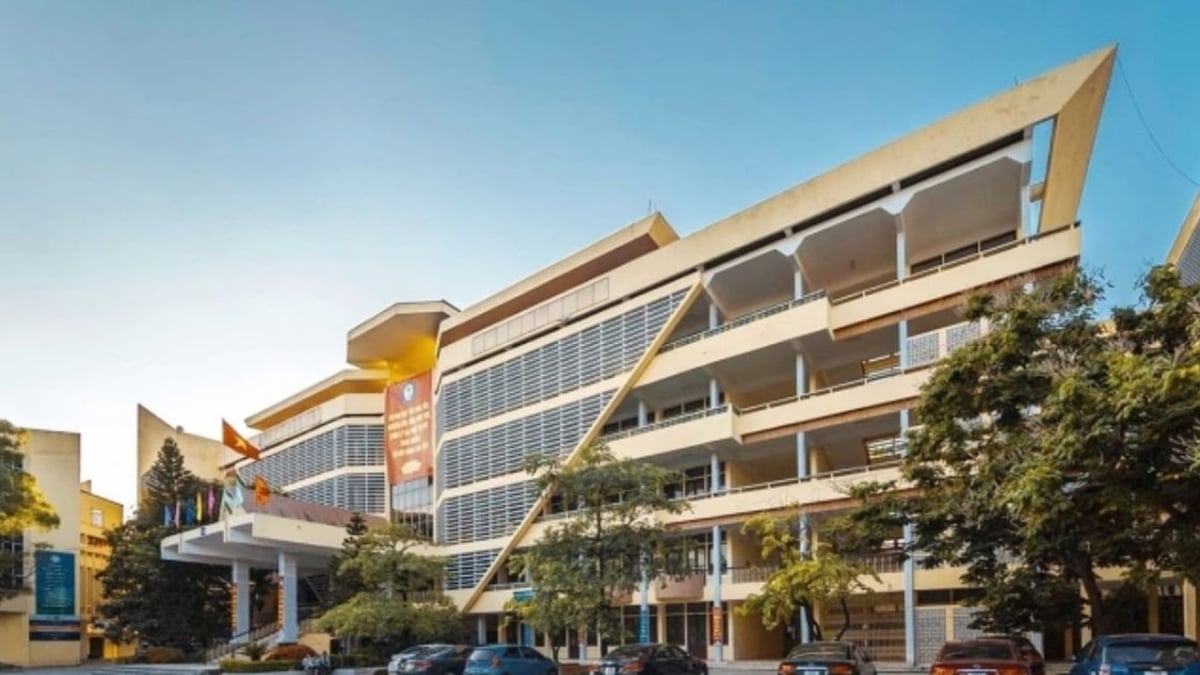
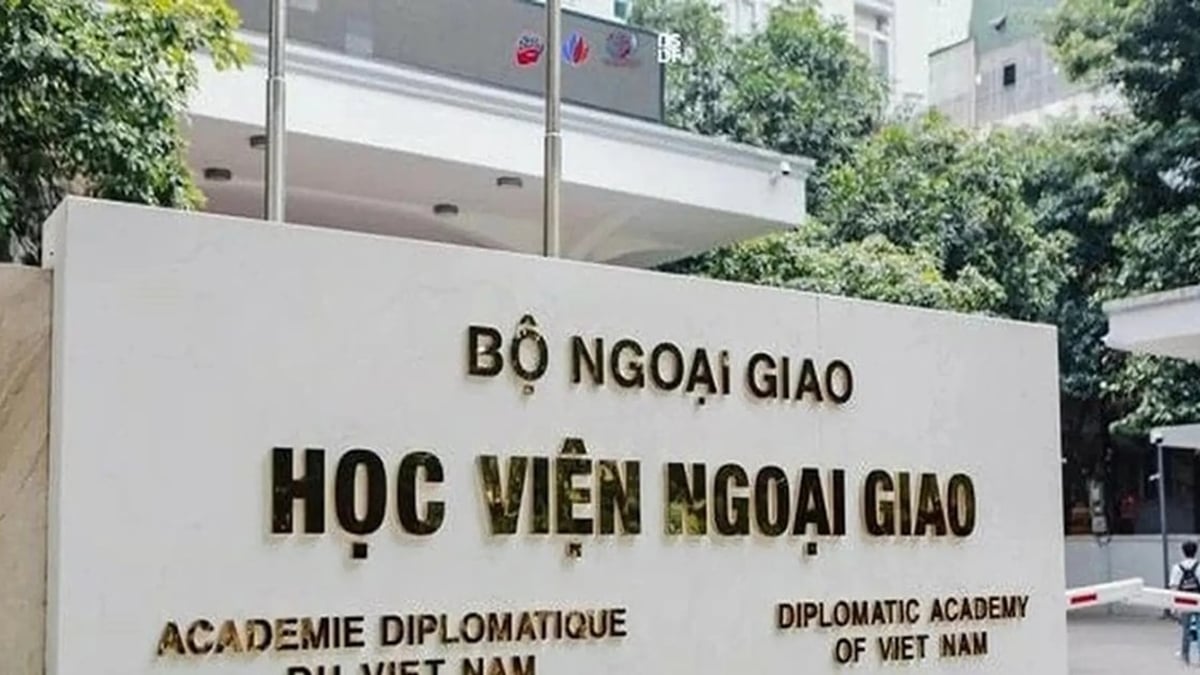
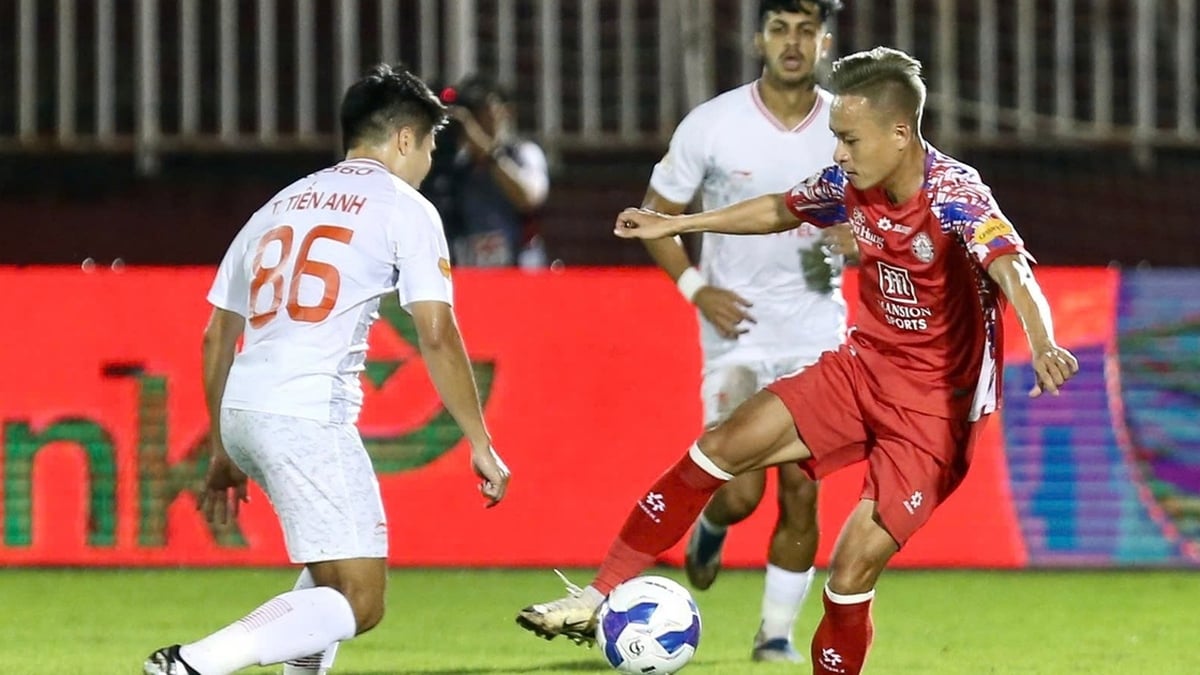
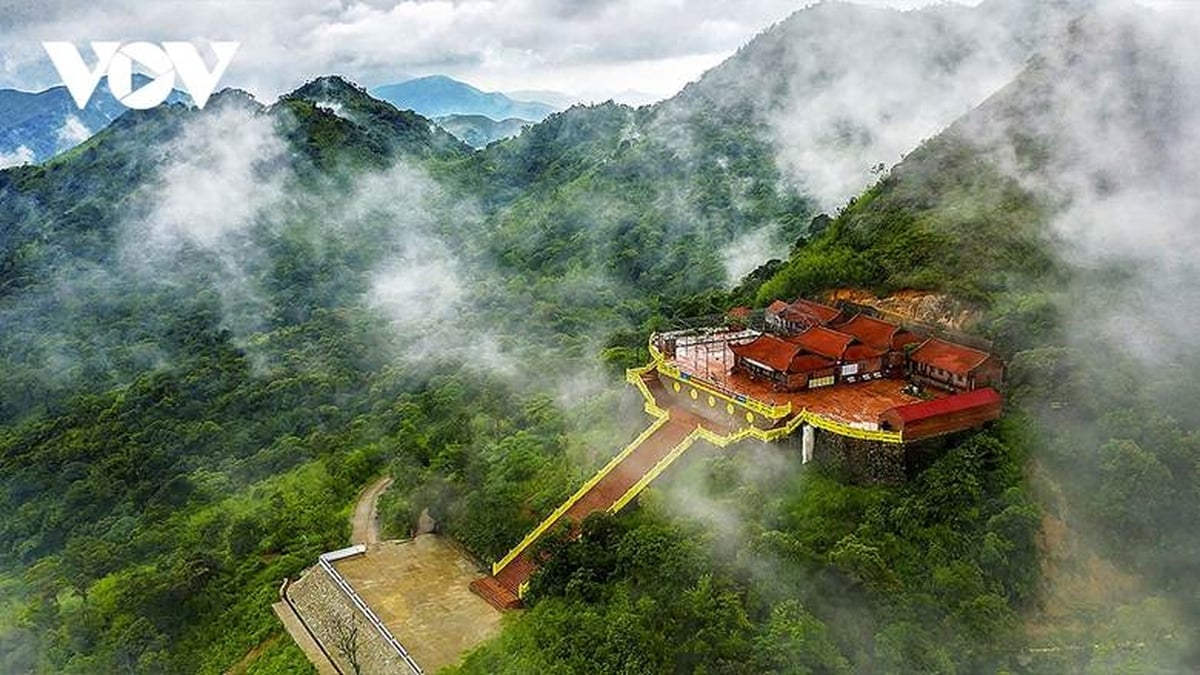
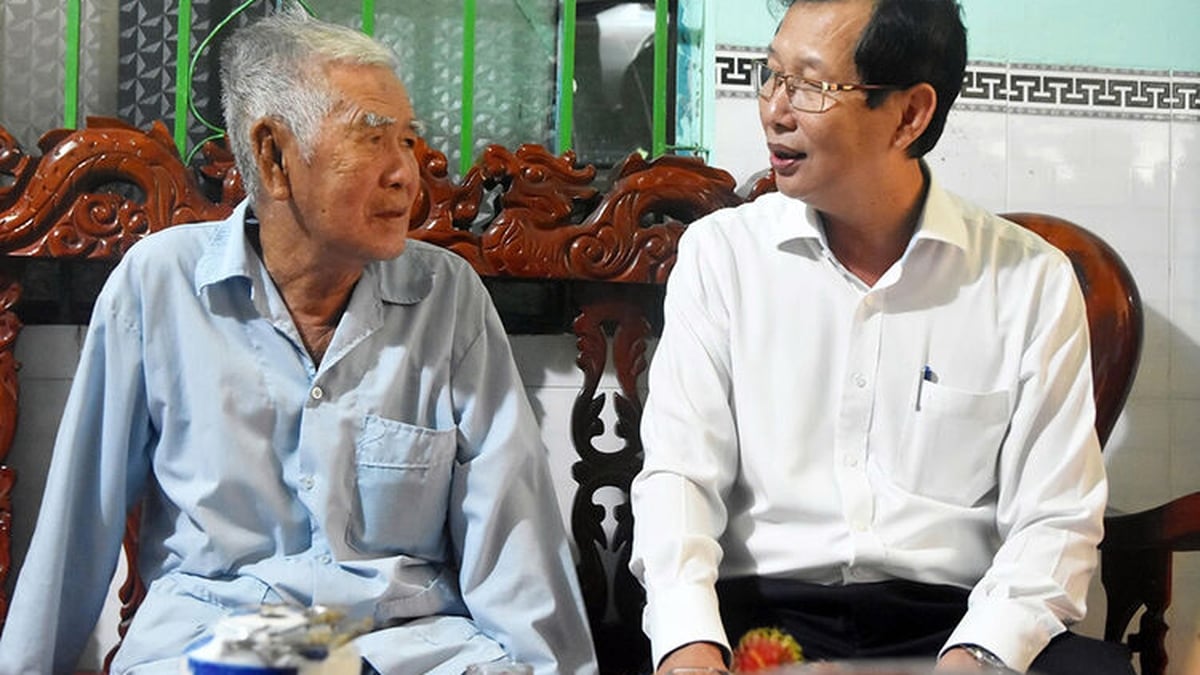







































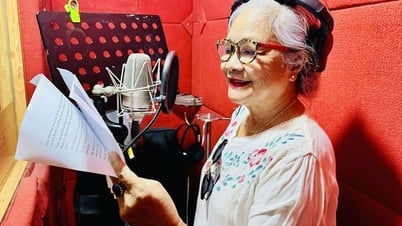

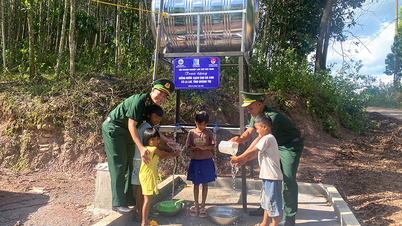
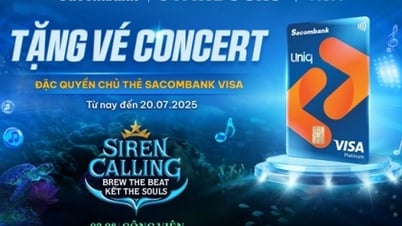

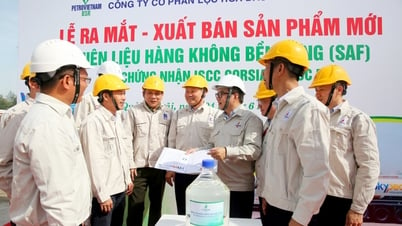


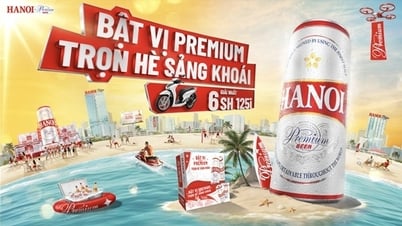

![[Maritime News] More than 80% of global container shipping capacity is in the hands of MSC and major shipping alliances](https://vphoto.vietnam.vn/thumb/402x226/vietnam/resource/IMAGE/2025/7/16/6b4d586c984b4cbf8c5680352b9eaeb0)



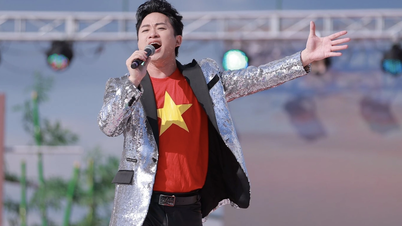
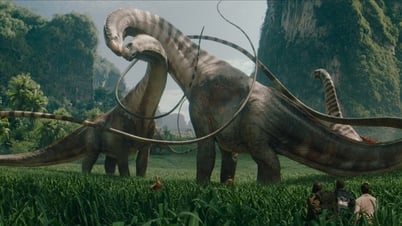

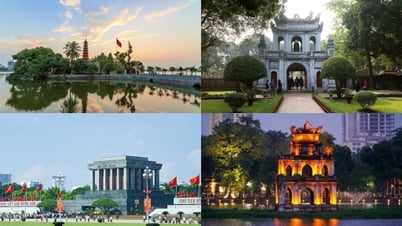
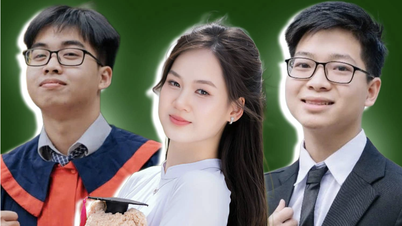
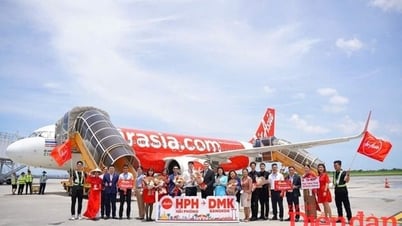

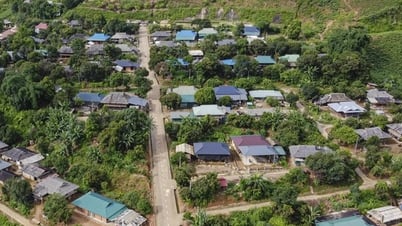
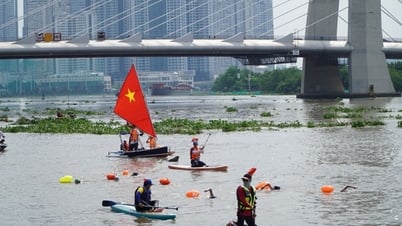
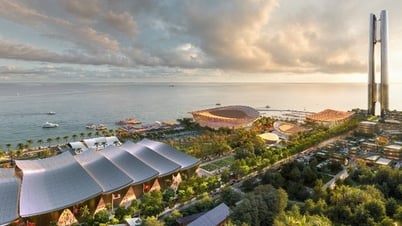
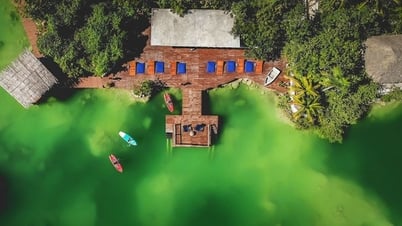
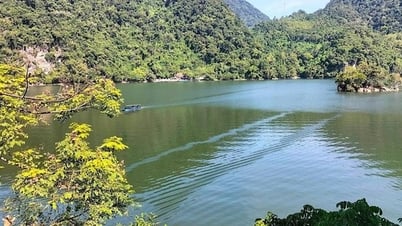























Comment (0)